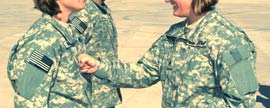Preface: The United States Army Corps of Engineers significantly contributed to hydraulic and hydrologic engineering over the last two hundred years. Exploiting theory, innovation, and mechanical ingenuity, Corps civilian and military engineers studied the behavior of rivers and the motion of water. They investigated hundreds of streams in the United States, many more than once, collecting data on the physical, chemical, and biological characteristics of rivers; regional precipitation; and local runoff. Their work vastly improved the nation’s ability to predict floods and to take preventive actions
Hydrology is the science that deals with the occurrence and circulation of water on the earth and in its atmosphere. However, most of its advances have resulted from engineering work, not laboratory research, and engineers have largely determined the present shape of the discipline. As hydrology evolved from a fundamentally empirical discipline to one embracing scientific rationalism and theory, hydrologists faced the problem of reconciling science with political and economic reality. Political and engineering solutions often conflicted in designing hydraulic structures, and satisfying policymakers while adhering to professional standards could severely challenge the engineering community. Vernon Hagen demonstrates that the Corps of Engineers was hardly immune to these professional trials.
This interview is one of several being produced in a special series covering engineers who shaped the Corps’ hydrology and hydraulics program. Understanding the experiences, contributions, and thoughts of these individuals illuminates the past and provides guidance for the future. We commend this interview to all those interested in the development of twentieth century research in river hydraulics and hydrology.













